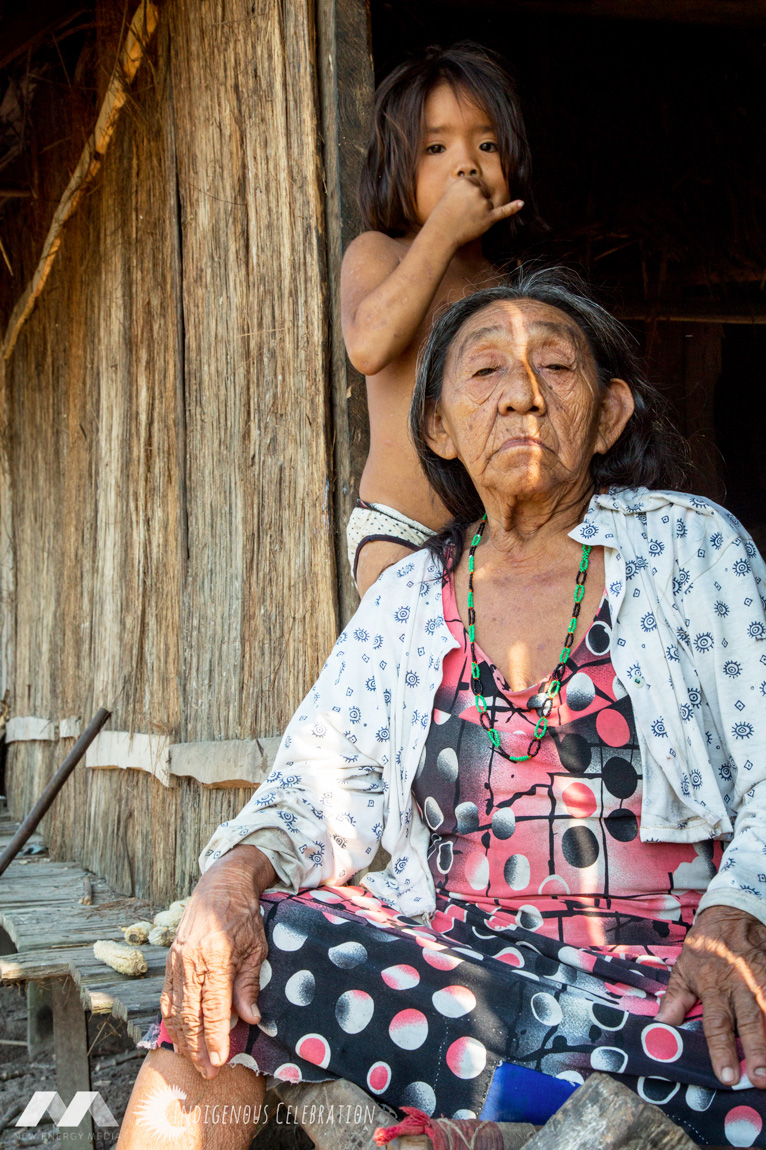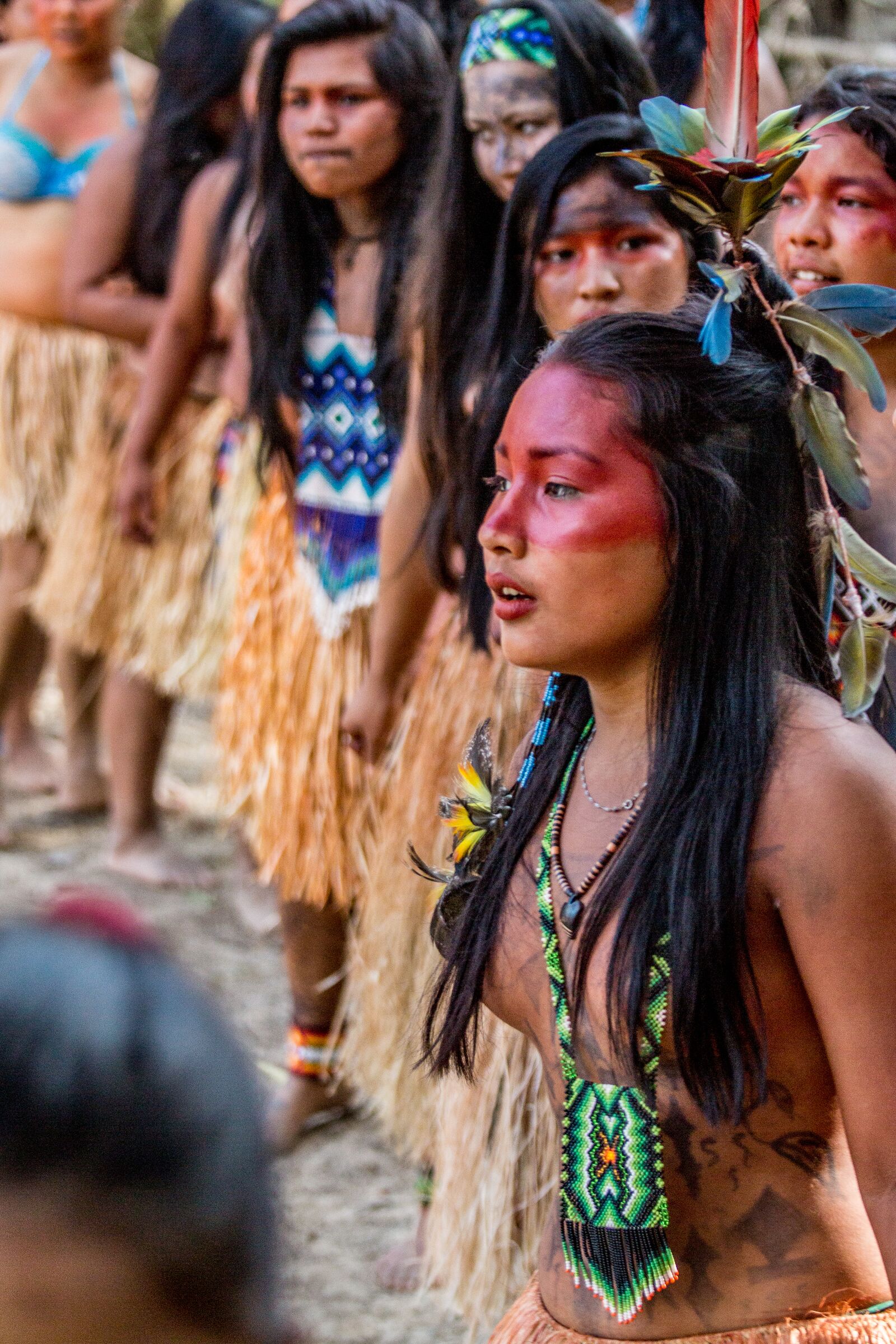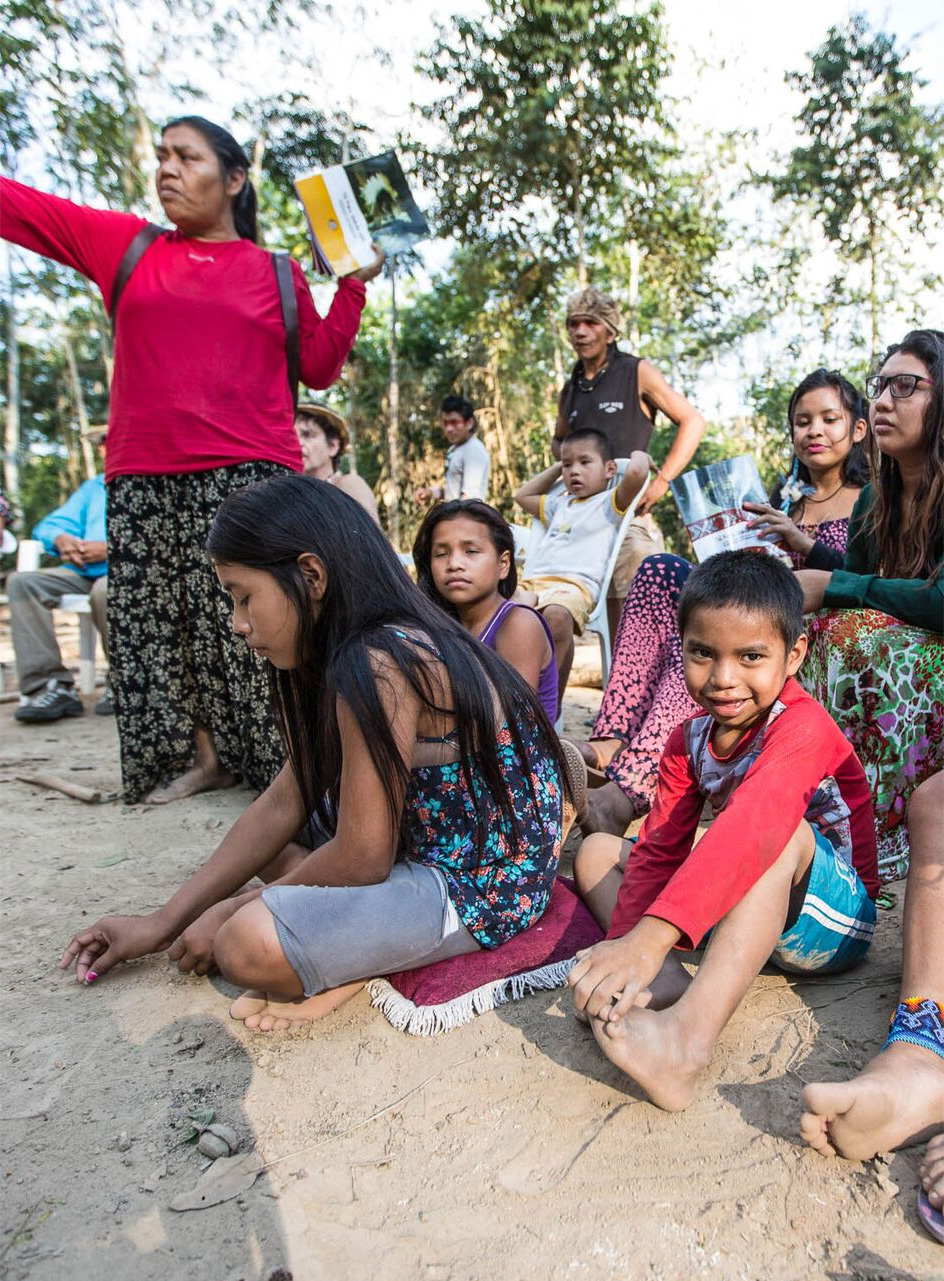
In Partnership with the Women’s Cooperative of Mutum Village
an Alliance was formed
In 2014, the Women’s Cooperative of Mutum was formed. After years of individually making and selling their own handcrafts with limited success, the inspiration to form an organization and commercialize their cooperation arrived. Indigenous Celebration entered an alliance with the Women’s Cooperative in July 2015, and quickly became the largest platform for the sale of Yawanawá crafts.

Need for Aid
The indigenous are on the front lines of climate change, vulnerable to every disturbance in the ecosystem they’ve depended on for millennia. No longer able to hunt and fish during “usual” times, given the extreme weather patterns and an ever changing climate, they must travel to cities to purchase supplemental food for survival.
The Yawanawá suffered a devastating flood in the Fall of 2014, which destroyed 7 of 8 villages and jeopardized the Mariri Festival, a centuries old celebration of Yawanawá culture and spirituality. IC’s collaboration with the Women’s Cooperative helped finance the 2015 Mariri Festival and keep the centuries old tradition alive.
Providing for Families
Over 400 women, many of whom are the primary income providers of their household, were empowered through the alliance. Together we’ve generated tens of thousands of dollars each year, to purchase canoes, chickens, medical supplies, hunting riffles, food supplements, and other basic necessities for the community. Through the success of our Women’s Empowerment work with the Yawanawá, we expanded our reach in 2018 to include indigenous women artisans from 21 tribes in the Brazilian Amazon.


Fact box
The single most effective way to reduce carbon emissions is to protect the rainforest that still exists. Protecting the Amazon is more effective than current worldwide efforts to reduce industrial emissions and install alternative energy sources combined.
The absolute best way to protect the Amazon rainforest is to empower the Indigenous People that have lived there, in harmony with nature for thousands years, to continue to thrive as natural guardians of their environment.
“The support the Yawanawá families received from IC not only changed the lives of many Yawanawá artisan women, but gave new meaning to our lives and contributed significantly to the social projects of the villages.”


